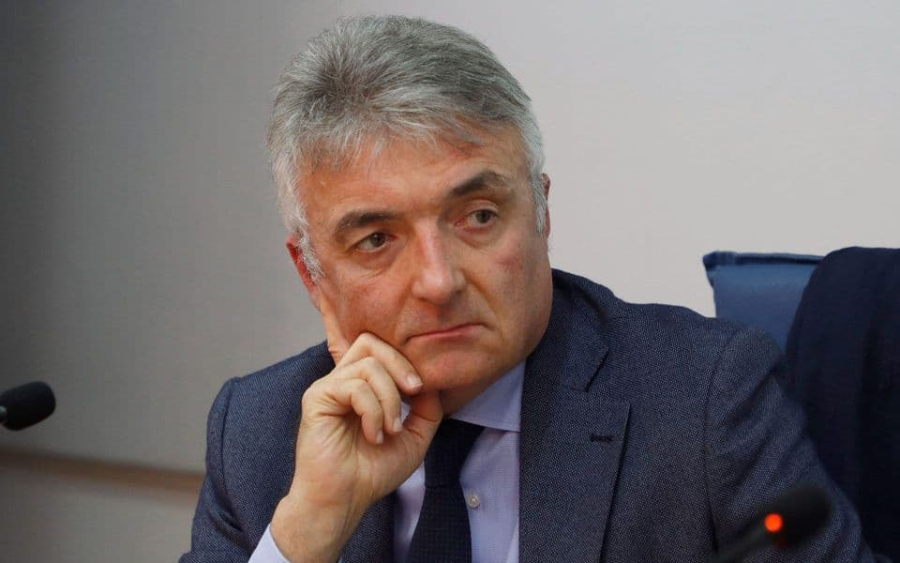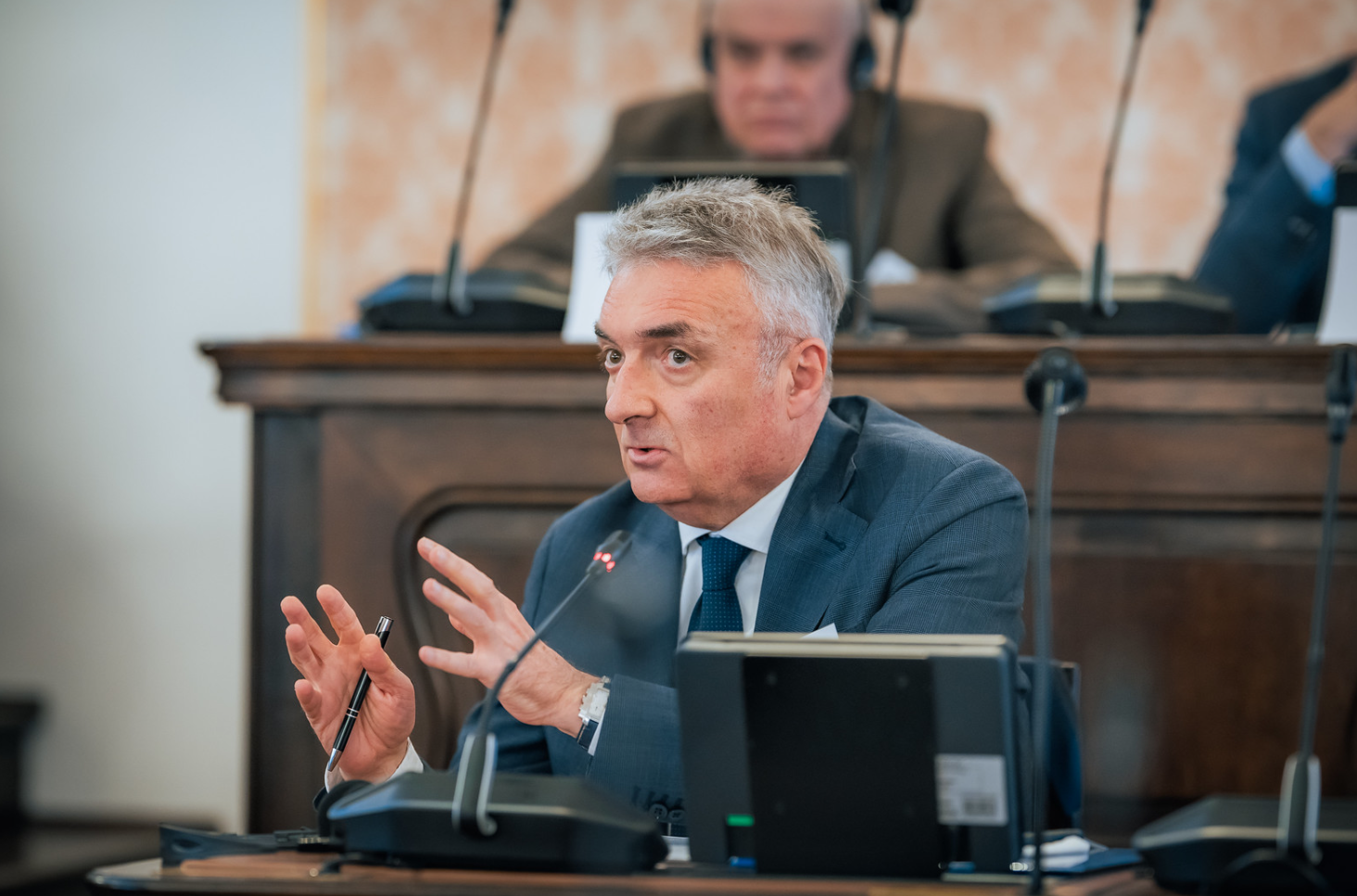The one-day conference under the title “How to Share, Promote and Protect European and Democratic Values in a Wartime”, organized by Institute of European Democrats (IED) and European Movement in Czechia, was held in Prague on December 4.
That was also a good opportunity – after listening to a number of prominent analysts, active and former diplomats and politicians – to re-address issues and problems related to various EU enlargement challenges – which stay in front both of EU and its member-states, on one side, and of the six Western Balkan countries, as well as Ukraine and Moldova, on the other.
Let us try to briefly enumerate some of the most relevant pieces of that highly complex historic puzzle.
First: The principal notion is that internal EU problems, especially in the context of decision-making – in this particular moment – pose the major obstacle for the EU enlargement in the foreseeable future.
That problem is not the new one. Consensus among EU member-states is needed for any decision related to enlargement. National referenda for the individual countries – i.e. would-be new members of EU family – put the bar even higher. Without procedural – that is: conceptual – changes in the very structure of the EU, the enlargement itself seems a mission impossible – and not only in practical/technical terms.
With present political situations and developments in, say, Hungary, Slovakia and/or the Netherlands, but also with trends in number of other EU countries, it is obvious that the chances for next EU member(s) are extremely unlikely.
Second. Twenty years after Thessaloniki Summit it is apparent that the results and improvements are far from those ones projected. “Enlargement fatigue”, which was a plausible expression/euphemism for stagnation and inertia for years, was replaced – and not only in speeches of EU bureaucrats – by the set of expressions and metaphors which, more or less diplomatically, indicate that enlargement is simply not on the EU agenda.
That overwhelming impression was amplified additionally by the appointment of a specific commissioner from Hungary. The mission of Mr Oliver Varhelyi, whose activities and attitude in number of situations have provoked a necessity for an EU investigation, corresponds fully with the ideological positions and political agenda of his native country, i. e. its autocratic prime minister.
That was a kind of self-fulfilling prophesy – in which the diplomacy of the member-state which faces the threat of “nuclear option” within EU was to provide for a representative responsible for enlargement and good-neighbourly relations … A perfect storm!
Third. As it was mentioned during the Conference – “Without the strengthening the internal stability of decision-making process, EU will not be able to fulfil its historic imperative” – that is to formulate and implement a credible and doable policy vis-a-vis Western Balkan countries, Ukraine and Moldova.
The historic time was wasted, the enthusiasm for enlargement has (almost) vanished. There is no wonder that EU enlargement is a non-topic in national and/or EU elections. No political party, in any of the EU countries, with very few and marginal exceptions, dares to mention that highly unpopular agenda in political campaigns…
On the other side – unfulfilled promises in candidate-countries and in those which still struggle to gain the candidate status have resulted in negative political developments in Western Balkan politics – where the old-new elites have learned the lesson: repetitive empty statements about “decisive EU commitment” can become an “efficient” surrogate for the concrete EU agenda. And that surrogate can last for years, which makes the situation even worse.
Fourth. The individual countries with EU membership ambitions – with few exceptions – show stagnation in their EU programs and activities. The worst ones – in the terms of advancement in required reforms are, in alphabetical order, Bosnia and Herzegovina, Montenegro and Serbia.
Not entering in their specific problems and negative developments, it is clear – for years now – that Serbia poses not only an obstacle for the EU orientation and efficient policies of neighbouring countries, but also a very drastic security threat for them and for the whole region. (Russian involvement must not be forgotten!) Nevertheless, its destructive policies (Kosovo included) are still not a good-enough reason for EU partners to act more decisively towards Mr Aleksandar Vučić and his nomenklatura. (That was shown, again, during the visit of Italian PM Meloni to Belgrade.)
Appeasement is still a core segment of EU policy towards Serbia. Needless to say – that is profoundly wrong for Serbia itself, but even more for the Western Balkans as a whole.
On the “Eastern European front” – both in figurative, but also in dramatic and tragic historical terms – Ukraine and Moldova can only hope that their candidate status will not become a “never-ending story”. Position of PM Orban and his foreign minister are tip of an pro-Russian “iceberg”, which is more visible now in Slovakia and the Netherlands, but which has its proxies, fervent supporters and promoters in number of EU countries, too. Present-day populism and nationalism harms the enlargement agenda profoundly – throughout EU.
Fifth. The results of EU enlargement policy are, therefore, poor. (Naturally, no-one can deny certain progress, but it would be wrong not to notice stagnation or deterioration of political situations in most of mentioned countries – with a destructive impact on their EU accession agenda.
There is a necessity for the new political realism in EU.
Setting the dates and benchmarks for the next “wave” of enlargement can only be useful for internal political propaganda. It is not strange to see that kind of “pro-EU rhetoric” being promoted by political leaders whose EU agenda is dominantly a mere “lip service” technique.
Western Balkans, Ukraine and Moldova represent now the “outskirts” of EU, a kind of political suburbia with predominantly unrealistic (and understandable!) ambition to join the EU in foreseeable future. It is clear that their membership will be a long, complex and painful process, with no guarantee of final success. It does not diminishes the profound interest of their citizens to join EU. But, that enthusiasm cannot and will not last forever. Turkey is an example. Putin’s Russia will not waste its time, too.
But, all of that does not decrease the very responsibility of political elites – both within and outside of EU – to re-think and re-invent their political concepts and strategies.
Their answers to these historic challenges will ultimately define whether they truly understand that “historic imperative”, or their projections are only a wishful thinking, with marginal or no chances to become our common European reality.
Miodrag Vlahović. Montenegrin politician and former diplomat. The first Minister of Foreign Affairs of Montenegro. Former Montenegro’s Ambassador to the USA, Canada, Iceland, Holy See, Order of Malta.




